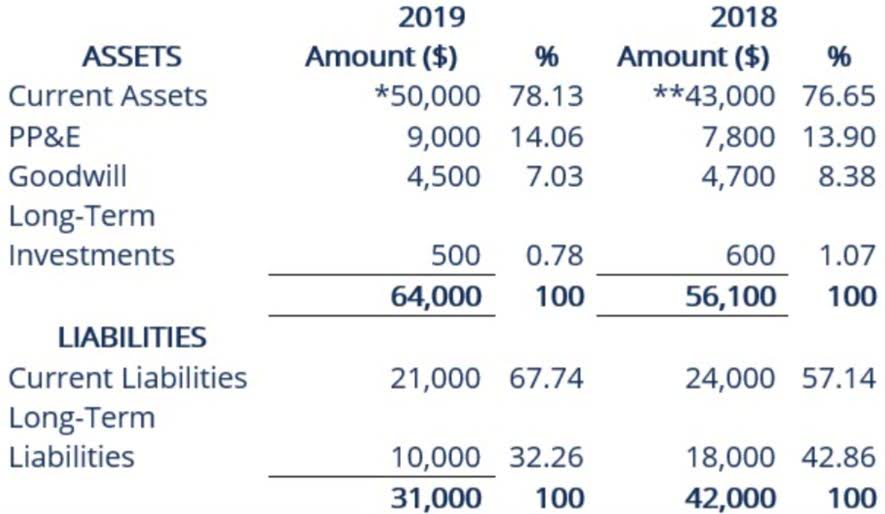
Coursera’s editorial team is comprised of highly experienced professional editors, writers, and fact… The CFE credential is recognized and respected by businesses, governments, and law enforcement agencies worldwide. When the client pays the invoice, the accountant credits accounts receivables and debits cash.
- On the other hand, accountancy specifically denotes the profession or practice of accounting.
- This overview explores the fundamental aspects of accounting, examining principles and practices across different specialties.
- A public accountant has the opportunity to work with a variety of clients and different types of businesses, which can be interesting and challenging.
- Accountants themselves are in demand in various industries, from government and nonprofit organizations to manufacturing and service firms.
- Bookkeepers and accountants are both critical for the financial health of a company.
- Accounting technicians are specifically trained to perform a wide range of accounting tasks, including bookkeeping, data entry, and financial statement preparation.
- It provides quantitative information concerning the economic activities of the enterprise that plays an important role in the decision-making process.
Accounting Explained With Brief History and Modern Job Requirements
That said, when referring to the field itself, I’ll never use accountancy and will stick with accounting. Accountancy and accounting have subtle differences that make them appear more similar than different. “Accountancy” is not the same as “accounting” even if people often use them interchangeably. These two terms are familiar to anyone interested or involved in finance, and many do not know how accountancy differs from accounting. Many people use the terms interchangeably, but there are some important differences you should be aware of, especially if you plan to pursue a career in accounting. This position requires a security background check, including fingerprint as a condition of employment.

I have already learned some great new skills that are directly applicable to my career and my personal life.”
Understanding these differences allows us to appreciate their unique roles and how they complement each other. Another easy to use option that’s perfect for self-employed entrepreneurs who need an affordable accounting solution is Neat. Learners are advised to conduct additional research to ensure that courses and other credentials pursued meet their personal, professional, and financial goals. A public accountant has https://www.bookstime.com/ the opportunity to work with a variety of clients and different types of businesses, which can be interesting and challenging.
- In this role, you will use these systems to track a company’s financial transactions, generate reports, and help decide where to allocate resources.
- Accountants rely on financial statements from bookkeepers to do their work, but they also look for larger trends and the way money works across the business.
- Today, he works as a multimedia specialist at University of Phoenix where he covers a variety of topics ranging from healthcare to IT.
- Under this doctrine, if you don’t know the value of something precisely, you count it as zero.
- Unlike financial accounting, managerial accounting allows for flexibility and customization of reports.
- Luca Pacioli is considered “The Father of Accounting and Bookkeeping” due to his contributions to the development of accounting as a profession.
Why is Accountancy Essential for a Successful Business?

It involves the measurement, processing, and communication of financial information to various stakeholders, including managers, investors, and regulatory authorities. accountancy Bookkeepers and accountants are both critical for the financial health of a company. If you’re not tracking daily expenses, you’ll have very little information to give to your accountant and they won’t be able to make informed decisions. If you’re only focusing on expenses and not big-picture financial data, you’ll miss out on some strategic opportunities. Accounting is the process of keeping track of all financial transactions within a business, such as any money coming in and money going out. It’s not only important for businesses in terms of record keeping and general business management, but also for legal reasons and tax purposes.
- The Generally Accepted Accounting Principles that guide financial statement preparers is an area where accountancy and accounting intersect – this adds more confusion to how one term is distinct from the other.
- While many accountants work regular hours in office settings, modern technology has also allowed for remote work opportunities—making it possible to build a career that is rewarding, flexible, and lucrative.
- These are key skills for bookkeepers, so if you’re not a fan of math at all, it may not be the best career path.
- We also allow you to split your payment across 2 separate credit card transactions or send a payment link email to another person on your behalf.
- Tax accountants overseeing returns in the United States rely on guidance from the Internal Revenue Service.

If you also plan to take the CPA exam, review the requirements for the state(s) you plan to seek licensure. If you aren’t sure which option is right for you, take this short program selection quiz. With 100% online coursework, Boise State’s Online MSA gives you the freedom to earn a graduate degree at your own pace while meeting the other obligations in your life. The work bookkeepers do, such as recording invoices, creating journal entries, and reconciling bank accounts, fall under accounting. While this meaning doesn’t provide a clear definition of accountancy, the industry understands accountancy as an umbrella term that covers many concepts.

The gold standard is discounted cash flow analysis, which is applied to a series of cash flows over a period of time. The discount rate (represented as a percentage) accounts for opportunity cost, inflation, and risk, and brings the value of a future stream of cash to its present value. The accrual method of accounting, which is followed by most organizations, records transactions as they are agreed upon, as opposed to when they are completed. It allows for transactions to be made with credit or deferred payments, and operates under the idea that revenues and costs will smooth out over time to more accurately depict economic reality.
Additionally, accountancy involves the analysis of financial activity using accounting data. If you become a business manager, you will use specific principles in the field of accountancy to make informed decisions based on financial reports and data collected by bookkeepers and overseen by accountants. An accounting technician, also known as an accounting clerk or accounting assistant, is a professional who is responsible payroll for providing support to accountants, auditors, and other accounting professionals.
Financial accounting refers to the processes used to generate interim and annual financial statements. The results of all financial transactions that occur during an accounting period are summarized in the balance sheet, income statement, and cash flow statement. The financial statements of most companies are audited annually by an external CPA firm.
